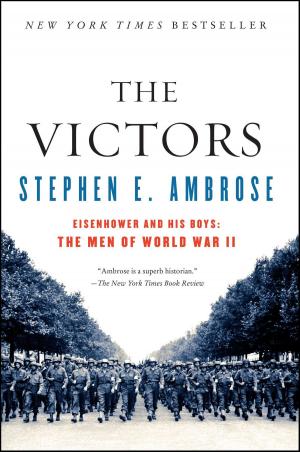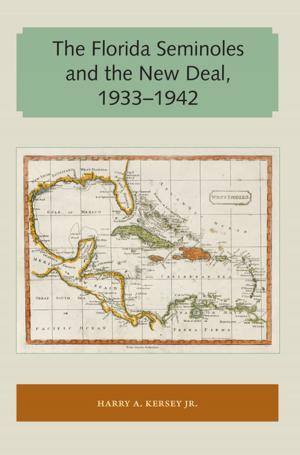My War at Sea 1914–1916: A Captain's Life with the Royal Navy During the First World War
Nonfiction, History, Military, Other, Modern, 20th Century| Author: | Heathcoat Grant | ISBN: | 9780956690272 |
| Publisher: | Heathcoat Grant | Publication: | May 22, 2014 |
| Imprint: | Smashwords Edition | Language: | English |
| Author: | Heathcoat Grant |
| ISBN: | 9780956690272 |
| Publisher: | Heathcoat Grant |
| Publication: | May 22, 2014 |
| Imprint: | Smashwords Edition |
| Language: | English |
This book is based on the wartime recollections of Heathcoat S. Grant, the captain of the HMS Canopus between 1914–1916. It is published in conjunction with the War Letters 1914–1918 series.
For the first two years of the war HMS Canopus had as eventful a time as any ship in the Royal Navy, being involved at Coronel, the Battle of the Falklands and the attempt to force the Dardanelles.
As captain of the ship, Grant’s account, based on his service reports and diary, is a valuable source for those wanting to know more about such key naval events of the First World War. It has the added advantage of being highly readable.
The report of his conversations with Rear-Admiral Sir Christopher Cradock sheds a valuable light on events at Coronel, while his description of the measures taken on land to defend the Falkland Islands details an important aspect of the battle often overlooked in accounts which focus primarily on the battle at sea.
The Canopus also played a critical role at the Dardanelles, getting further up the Straits than any other Allied ship, and Grant’s sceptical perspective from inside the higher echelons of the Royal Navy adds further grist, if more were needed, to critics of the campaign. Later his account of the role of the navy in the Smyrna patrol and the subsequent operations against the Turkish coast following the evacuation of the Gallipoli peninsula provide a fascinating view into this frequently forgotten aspect of the conflict.
It is was when researching material for the explanatory notes to accompany War Letters 1914–1918, Vol. 2, based on the letters of Philip Malet de Carteret, a 16-year-old midshipman on HMS Canopus during the First World War, that I came across the series of seven articles from 1923–1924 in the Naval Review written by Heathcoat Grant which now form the basis of this book.
With the kind permission of the Naval Review, I have brought together all of Grant’s articles and reproduced them in a single volume to make them more easily accessible. I have also added the account given by Commander Philip J. Stopford of the Canopus which also appeared in the Naval Review. Stopford’s account is much shorter and considerably less interesting than Grant’s, but it does offer some additional insights.
There are no notes to accompany the accounts given by Grant and Stopford, and therefore a some prior knowledge of the events mentioned is useful. For those wanting to know more, there are extensive notes to accompany the letters of Philip Malet de Carteret in War Letters 1914–1918, Vol. 2.
Covering the same events described by Grant and Stopford, Philip’s letters describe events from the perspective of a 16-year-old midshipman. The wide-ranging notes presume no prior knowledge of events and almost all include direct links to a vast range of freely available online resources for naval history including official histories, ships’ logs, naval memoirs, maps, naval training manuals, and much more.
Almost all the links to online resources in the notes are freely available to anyone with internet access. The main exception are the articles from the Oxford Dictionary of National Biography, which is a subscription service. For British readers who hold a public libraries lending card there should be free online access using your lending card number as most local libraries subscribe to the service.
Short extracts from War Letters 1914–1918, Vol. 2 can be read at the end of this volume.
This book is based on the wartime recollections of Heathcoat S. Grant, the captain of the HMS Canopus between 1914–1916. It is published in conjunction with the War Letters 1914–1918 series.
For the first two years of the war HMS Canopus had as eventful a time as any ship in the Royal Navy, being involved at Coronel, the Battle of the Falklands and the attempt to force the Dardanelles.
As captain of the ship, Grant’s account, based on his service reports and diary, is a valuable source for those wanting to know more about such key naval events of the First World War. It has the added advantage of being highly readable.
The report of his conversations with Rear-Admiral Sir Christopher Cradock sheds a valuable light on events at Coronel, while his description of the measures taken on land to defend the Falkland Islands details an important aspect of the battle often overlooked in accounts which focus primarily on the battle at sea.
The Canopus also played a critical role at the Dardanelles, getting further up the Straits than any other Allied ship, and Grant’s sceptical perspective from inside the higher echelons of the Royal Navy adds further grist, if more were needed, to critics of the campaign. Later his account of the role of the navy in the Smyrna patrol and the subsequent operations against the Turkish coast following the evacuation of the Gallipoli peninsula provide a fascinating view into this frequently forgotten aspect of the conflict.
It is was when researching material for the explanatory notes to accompany War Letters 1914–1918, Vol. 2, based on the letters of Philip Malet de Carteret, a 16-year-old midshipman on HMS Canopus during the First World War, that I came across the series of seven articles from 1923–1924 in the Naval Review written by Heathcoat Grant which now form the basis of this book.
With the kind permission of the Naval Review, I have brought together all of Grant’s articles and reproduced them in a single volume to make them more easily accessible. I have also added the account given by Commander Philip J. Stopford of the Canopus which also appeared in the Naval Review. Stopford’s account is much shorter and considerably less interesting than Grant’s, but it does offer some additional insights.
There are no notes to accompany the accounts given by Grant and Stopford, and therefore a some prior knowledge of the events mentioned is useful. For those wanting to know more, there are extensive notes to accompany the letters of Philip Malet de Carteret in War Letters 1914–1918, Vol. 2.
Covering the same events described by Grant and Stopford, Philip’s letters describe events from the perspective of a 16-year-old midshipman. The wide-ranging notes presume no prior knowledge of events and almost all include direct links to a vast range of freely available online resources for naval history including official histories, ships’ logs, naval memoirs, maps, naval training manuals, and much more.
Almost all the links to online resources in the notes are freely available to anyone with internet access. The main exception are the articles from the Oxford Dictionary of National Biography, which is a subscription service. For British readers who hold a public libraries lending card there should be free online access using your lending card number as most local libraries subscribe to the service.
Short extracts from War Letters 1914–1918, Vol. 2 can be read at the end of this volume.















